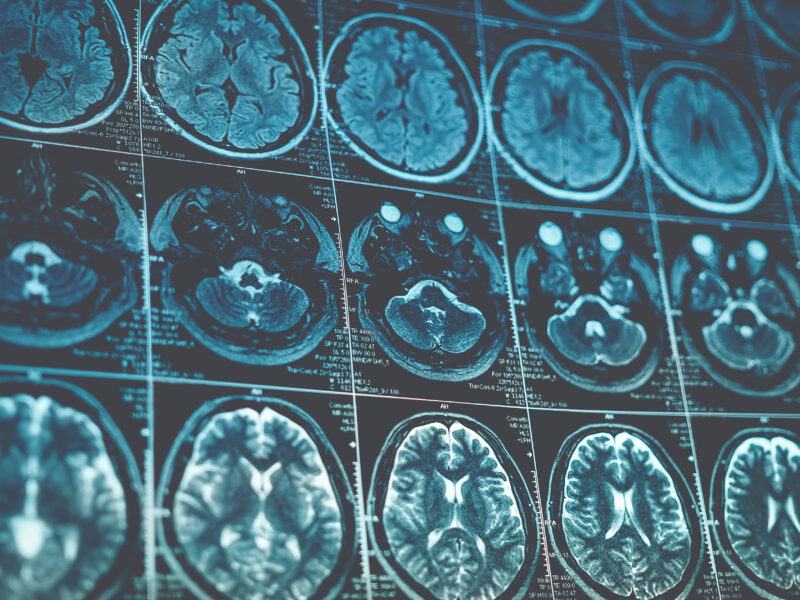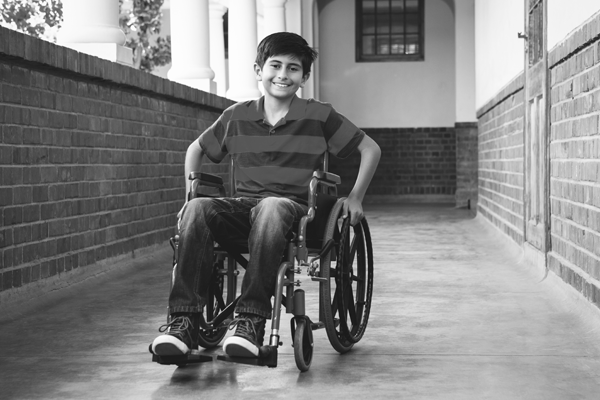Nation’s First Clinical Trial for Pediatric Stroke Rehabilitation
Nation’s First Clinical Trial for Pediatric Stroke Rehabilitation https://pediatricsnationwide.org/wp-content/uploads/2020/12/AdobeStock_32667489_mr-executive-functions-header-1024x575.gif 1024 575 Mary Bates, PhD Mary Bates, PhD https://secure.gravatar.com/avatar/c6233ca2b7754ab7c4c820e14eb518c8?s=96&d=mm&r=g- September 04, 2019
- Mary Bates, PhD

A novel movement-based therapy is being evaluated in infants who suffered a stroke as newborns or in the womb.
Nationwide Children’s Hospital is participating in the nation’s first multicenter pediatric stroke recovery trial. The Phase III clinical trial, called I-ACQUIRE, will evaluate an innovative therapy to increase motor skills in 8-month-old to 24-month-old infants who have suffered a stroke.
Arterial ischemic stroke can occur in newborns or in babies while they are still developing in the womb. Damage in the brain may result in weakness or paralysis on one side of the body, typically in the arm or the arm and leg together.
In a statement, Sharon Landesman Ramey, PhD, a professor and distinguished scholar at Virginia Tech and a co-principal investigator of the clinical trial, said that it’s eye-opening when people learn that babies, like adults, have a very high risk for stroke.
“About half of these infants will not have a permanent impairment, but for the remainder, stroke is a serious event that can produce lifelong, serious neuromotor problems,” she said. “Given the impact of infant stroke on the child and families, it is astonishing that there is little or no scientific evidence to support the current rehabilitation approaches being used.”
Dr. Ramey and her collaborators developed a novel form of pediatric movement therapy, adapted from a type of treatment for adults known as constraint-induced movement therapy. In this therapy, the unaffected arm is constrained while the patient undergoes a gradually increasing training program to improve use of the affected, weaker limb. In adults with stroke, this intensive therapy can enable some recovery of motor function in affected limbs.
“There is a lot of uncertainty in the field as to what should be done in terms of the rehabilitation of infants who have experienced a stroke,” says Warren Lo, MD, a pediatric neurologist at Nationwide Children’s and a co-principal investigator of the clinical trial.
Now, Dr. Lo, along with Dr. Ramey and collaborators, will examine the effectiveness of constraint-induced movement therapy in infants who experienced strokes before the first four weeks of life. The I-ACQUIRE trial will be held at 12 sites across the United States, including Nationwide Children’s in collaboration with the Ohio State University. The trial will determine whether high-intensity constraint improves motor function in these children more than the care that is currently provide, and whether this treatment can be successfully delivered at multiple sites in the US.
The I-ACQUIRE therapy will be tested in children at a three-hour and six-hour daily dose, five days a week for four weeks, compared with usual care. After one month of therapy, the investigators will measure motor functioning in the affected arm and elsewhere in the body. They will also look at secondary measures such as social interaction and language development.
“There is a shortage of randomized clinical rehabilitation trials after stroke in general, and certainly in children,” says Dr. Lo, who is also Clinical Professor of Pediatrics and Neurology at The Ohio State University College of Medicine.
“If this study shows that the interventions are effective, there is the potential to change the field of stroke rehabilitation, particularly for young infants,” he says.
The trial is part of a national stroke research network known as StrokeNet, which is funded by the National Institutes of Health.
Dr. Lo says I-ACQUIRE is the largest randomized, controlled studies of stroke therapy in children.
“Not only is this study likely to have significant results that have the potential to answer key questions in the field, but the support from StrokeNet reflects recognition of the importance of pediatric stroke within the larger communities of rehabilitation and stroke,” says Dr. Lo.
The I-ACQUIRE clinical trial is recruiting. To find out more, contact the Stroke Clinic at Nationwide Children’s.
Image credit: Adobe Stock
About the author
Mary a freelance science writer and blogger based in Boston. Her favorite topics include biology, psychology, neuroscience, ecology, and animal behavior. She has a BA in Biology-Psychology with a minor in English from Skidmore College in Saratoga Springs, NY, and a PhD from Brown University, where she researched bat echolocation and bullfrog chorusing.
-
Mary Bates, PhDhttps://pediatricsnationwide.org/author/mary-bates-phd/December 27, 2016
-
Mary Bates, PhDhttps://pediatricsnationwide.org/author/mary-bates-phd/
-
Mary Bates, PhDhttps://pediatricsnationwide.org/author/mary-bates-phd/
-
Mary Bates, PhDhttps://pediatricsnationwide.org/author/mary-bates-phd/






